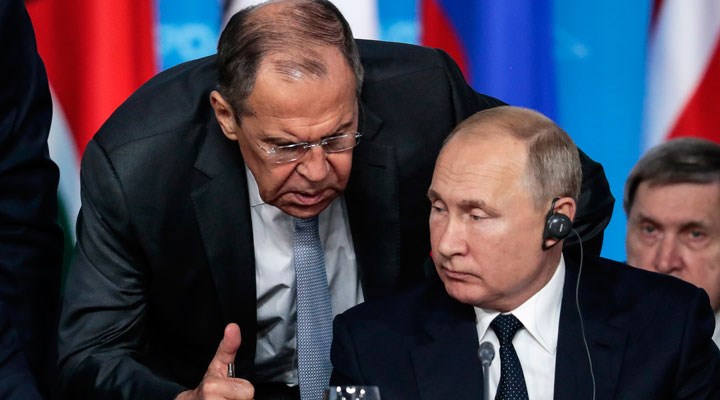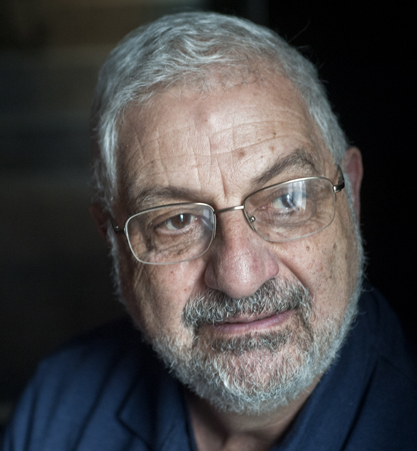The Escalation of Rhetoric Will Not End the War in Ukraine


The homespun American humorist Will Rogers famously said, “Russia is a country that no matter what you say about it, it’s true. Even if it’s a lie, it’s true. If it’s about Russia.” In the years since Vladimir Putin came to power, much of the harsh criticism directed at Putin’s Russia, even before his unprovoked invasion and brutal terror war in Ukraine, has been deserved. From the dysfunctional government of Boris Yeltsin of the 1990s, with its chaotic mix of democratic and plutocratic features, Russia under Putin has steadily gravitated toward kleptocracy and authoritarianism. In foreign adventures it has backed warlords in Africa and Syria’s murderous Assad regime, and domestically and abroad it has engaged in political assassinations of opponents.
With the current war in Ukraine, in which verifiable war crimes have been committed, there are no longer any restraints on what Western pundits can say about Russia and Putin. Scholars have labeled the Russian president an imperialist, a fascist, a modern-day Adolf Hitler, with whom any negotiation becomes appeasement. The atrocities committed by Russian soldiers have been elevated in the words of Ukrainian and American leaders to the level of the “crime of crimes,” genocide. As Estonian prime minister Kaja Kallas recently said, “Peace can’t be the ultimate goal. We had peace after the Second World War,” but atrocities for our people continued in an attempt to “erase our culture and our language.”
From NATO leaders through much of the media, the chorus sings in unison, and alternative readings of what the men in the Kremlin are thinking and planning have been muffled. The once-plausible explanation for Moscow’s actions – the expansion of NATO eastward, the placement of rockets in Poland and Romania, the abrogation of nuclear arms treaties by the United States – appears apologetic in the face of Russia’s targeting of civilians and the atrocities revealed at Bucha. In fact, it reflects the rhetoric of the Russians themselves, who insist that the invitation to Ukraine to join NATO in 2008 presented an existential threat to the security of the Russian Federation.
Two views, mutually exclusive – one based on Putin as empire-builder and/or fascist, the other that the Russian elite’s anxieties about their security are genuine and must be taken seriously – crowd out any alternatives. The imperialist, fascist narrative appears to have convinced Washington, while the security narrative is proclaimed by Russia and a number of other countries, among them India and China. For Europe and the United States, February 24, 2022, the day Putin launched his invasion of Ukraine, changed everything. As international relations theorist Stephen M. Walt put it, “Notice that Russia’s motivations for invading Ukraine aren’t the central issue… — it doesn’t matter if Russian President Vladimir Putin is a dyed-in-the-wool expansionist or driven largely by a profound sense of insecurity. What matters is that he chose to go to war.”
Why are we so ready to turn to historical analogies like Munich in 1938 and raise the rhetorical heat to the level of fascism and genocide? Do such charged words work as explanation? Such language debases the real examples in our shared pasts of fascism and genocide.
Abuse of historical analogies
The abuse of historical analogies has had and still has enormous reverberations on states’ policies. Note the way such comparisons have been used in the past and in the current crisis over Ukraine. During the Cold War Stalinism and Nazism were combined into a single category labelled totalitarianism, and the two regimes were seen as the Janus faces of a single political system. In especially egregious misuses of history, prominent historians equate Putin’s program with Stalin’s actions during the infamous Nazi-Soviet Pact period. Rather than seeing Stalin’s alliance with Hitler as a tactical maneuver after the West rejected Soviet overtures, an alliance to gain time and delay or prevent a German attack on a vulnerable USSR, which many historians argue were Stalin’s motives, the two-year alliance between Hitler and Stalin is reimagined as shared fascist goals of the two dictators that made World War II and the Holocaust possible.
The 2022 invasion of Ukraine simply confirms what many writers critical of or hostile to Russia suspected all along. In the raw emotions raised by the horrific images of what the Russians are now doing in Ukraine, viewing Russia as imperial, fascist, and genocidal is an effective, popular, if hyperbolic, explanation of Putin’s delusional policies. Yet analogous and metaphorical uses of the term “fascist” tend, in my view, to be less explanatory than polemical and highly partisan.
For most historians, fascism has a limited meaning – the movement and ideology in interwar Europe that saw some nations and races as superior to others and war as a means to imperial aggrandizement. Indeed, classical fascism was not only racist and expansionist but deeply anti-liberal, anti-egalitarian, and anti-communist. Seeing Stalin and Putin as fascist erases the history of the USSR as the major enemy and target of the interwar fascists. The Cold War concept of “Red Fascism” exaggerated the evident similarities between Hitlerism and Stalinism but avoided differences between quite distinct regimes, ignoring the contrast between an egalitarian, internationalist doctrine (Marxism) that the Soviet regime failed to realize and the inegalitarian, racist and imperialist ideology (fascism) that the Nazis implemented only too well.
The USSR was the major power that defeated fascism in Europe, losing some 27 million people, and not only liberated the death camps in Poland and took Berlin, but ended the Holocaust and made the world safe for democracy and capitalism in the West.
There are plenty of reactionary, even fascist, pundits and politicians in Russia, as there are in almost all countries, the United States and Turkey included. Russian conservatives and Great Power imperialists oppose democracy of the Western type and believe that Russians and Ukrainians make up one ethnic people. But is this equivalent to fascism? In such polemical, ahistorical usages, fascism becomes whatever the author wants to define it as, just as genocide is extended to encompass any mass killing (done by your adversaries).
Political activists and polemicists have thrown around the epithet “fascist” or the Hitler label indiscriminately to discredit opponents – similar to the way that the American Right disperses words like “socialist” or “Marxist” as epithets to discredit liberals and Democrats. Wary of ahistorical amalgamations of discrete and different events, circumstances, and regimes, I believe that the only one we should call Hitler is Hitler.
What if we were less selective about Putin’s occasional quotations of reactionary Russians and his historical fantasies that Ukrainians and Russians are a harmonious whole, a delusion that the war if nothing else must have by now disabused him of?
Putin's motives
What motivates Putin are not only dreams of a greater Russia, a state that the West will treat as a restored Great Power, but a far more ambitious vision: a major overhaul of the so-called “liberal international order” that he believes disadvantages Russia and has secured the global dominance of the United States. Since 2007, Putin has repeatedly emphasized that he believes – as does much of the Russian elite and public – that the West is out to weaken Russia, opposes its values, and wants to reduce its place in the world, and even undermine the present regime in Moscow. Putin opposes the unipolar world dominated by the United States and argues in favor of a multipolar international order with regional hegemons, like Russia in the former Soviet space.
In Putin’s mind he hoped against hope that Ukraine would be a stable, pro-Russian, or at least neutral state. But Putin’s own actions – the annexation of Crimea and the support of the separatists in the Donbas most importantly – drove Ukraine into the arms of the West and increased Russia’s vulnerability vis-à-vis NATO. The Kremlin saw Ukraine as a nearly failed state, vulnerable, corrupt, civilly and ethnically/linguistically divided -- easy pickings. He mistakenly saw an opportunity to prevent any further drift by Kyiv into the arms of NATO. Indeed, even though Ukraine was not in NATO, by 2021 NATO was effectively in Ukraine. Frightened by the prospect of a NATO armed Ukraine, Moscow did the unthinkable. It launched a preemptive war against Ukraine and attempted to overthrow its elected government.
While imperial, if not fascistic, fantasies probably fueled the delusional ambitions of some in the Kremlin, in my observations Putin has usually acted as a sober realist, cautious in foreign policy, though with occasional adventurist lapses. Certainly, the absurd fiction that Ukraine is ruled by Nazis plays in the Russian media, where its most vicious spokesmen inspire thoughts that Joseph Goebbels is alive and well in popular mass media. But we should not mistake propaganda for policy. For Putin and most Russians their country is not only not fascist, but on the contrary it was and still is the major bulwark against fascism in their understanding.
The term fascism, however, does not only describe but predicts future actions. It means, that such a regime is inevitably autocratic, expansionist, and prone to war.
There are dire costs to the fascist narrative. Negotiation is compared, analogously, to Munich, and appeasement leads inevitably to war. The use of the fascism is a call for war to a victorious conclusion, which in fact means a protracted conflict in which thousands more will die and the global economy will decline. The attempt to weaken Russia or drive it back into Asia, as Germany tried twice in the twentieth century, edges us all dangerously close to nuclear confrontation. The security narrative, on the other hand, provides an opening for talks, negotiations, and – as difficult and inappropriate as it is in light of the horrors of this war – mutual compromise.
(May 31, 2022)



